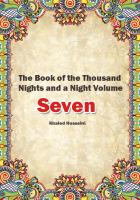The race was about half a mile and return, the first and last quarters being upon the ice. The course, after leaving the ice, led up from the river by a long easy slope to the level above; and at the further end curved somewhat sharply round the Old Fort. The only condition attaching to the race was that the teams should start from the scratch, make the turn of the Fort, and finish at the scratch. There were no vexing regulations as to fouls. The man ****** the foul would find it necessary to reckon with the crowd, which was considered sufficient guarantee for a fair and square race. Owing to the hazards of the course, the result would depend upon the skill of the drivers quite as much as upon the speed of the teams. The points of hazard were at the turn round the Old Fort, and at a little ravine which led down to the river, over which the road passed by means of a long log bridge or causeway.
From a point upon the high bank of the river the whole course lay in open view. It was a scene full of life and vividly picturesque.
There were miners in dark clothes and peak caps; citizens in ordinary garb; ranchmen in wide cowboy hats and buckskin shirts and leggings, some with cartridge-belts and pistols; a few half-breeds and Indians in half-native, half-civilised dress; and scattering through the crowd the lumbermen with gay scarlet and blue blanket coats, and some with knitted tuques of the same colours. A very good-natured but extremely uncertain crowd it was. At the head of each horse stood a man, but at the pintos' heads Baptiste stood alone, trying to hold down the off leader, thrown into a frenzy of fear by the yelling of the crowd.
Gradually all became quiet, till, in the midst of absolute stillness, came the words, 'Are you ready?', then the pistol-shot and the great race had begun. Above the roar of the crowd came the shrill cry of Baptiste, as he struck his broncho with the palm of his hand, and swung himself into the sleigh beside Sandy, as it shot past.
Like a flash the bronchos sprang to the front, two lengths before the other teams; but, terrified by the yelling of the crowd, instead of bending to the left bank up which the road wound, they wheeled to the right and were almost across the river before Sandy could swing them back into the course.
Baptiste's cries, a curious mixture of French and English, continued to strike through all other sounds till they gained the top of the slope to find the others almost a hundred yards in front, the citizens' team leading, with the miners' following close. The moment the pintos caught sight of the teams before them they set off at a terrific pace and steadily devoured the intervening space. Nearer and nearer the turn came, the eight horses in front, running straight and well within their speed.
After them flew the pintos, running savagely with ears set back, leading well the big roans, thundering along and gaining at every bound. And now the citizens' team had almost reached the Fort, running hard, and drawing away from the bays. But Nixon knew what he was about, and was simply steadying his team for the turn. The event proved his wisdom, for in the turn the leading team left the track, lost a moment or two in the deep snow, and before they could regain the road the bays had swept superbly past, leaving their rivals to follow in the rear. On came the pintos, swiftly nearing the Fort. Surely at that pace they cannot make the turn. But Sandy knows his leaders. They have their eyes upon the teams in front, and need no touch of rein. Without the slightest change in speed the nimble-footed bronchos round the turn, hauling the big roans after them, and fall in behind the citizens' team, which is regaining steadily the ground lost in the turn.
And now the struggle is for the bridge over the ravine. The bays in front, running with mouths wide open, are evidently doing their best; behind them, and every moment nearing them, but at the limit of their speed too, come the lighter and fleeter citizens' team;while opposite their driver are the pintos, pulling hard, eager and fresh. Their temper is too uncertain to send them to the front;they run well following, but when leading cannot be trusted, and besides, a broncho hates a bridge; so Sandy holds them where they are, waiting and hoping for his chance after the bridge is crossed.














